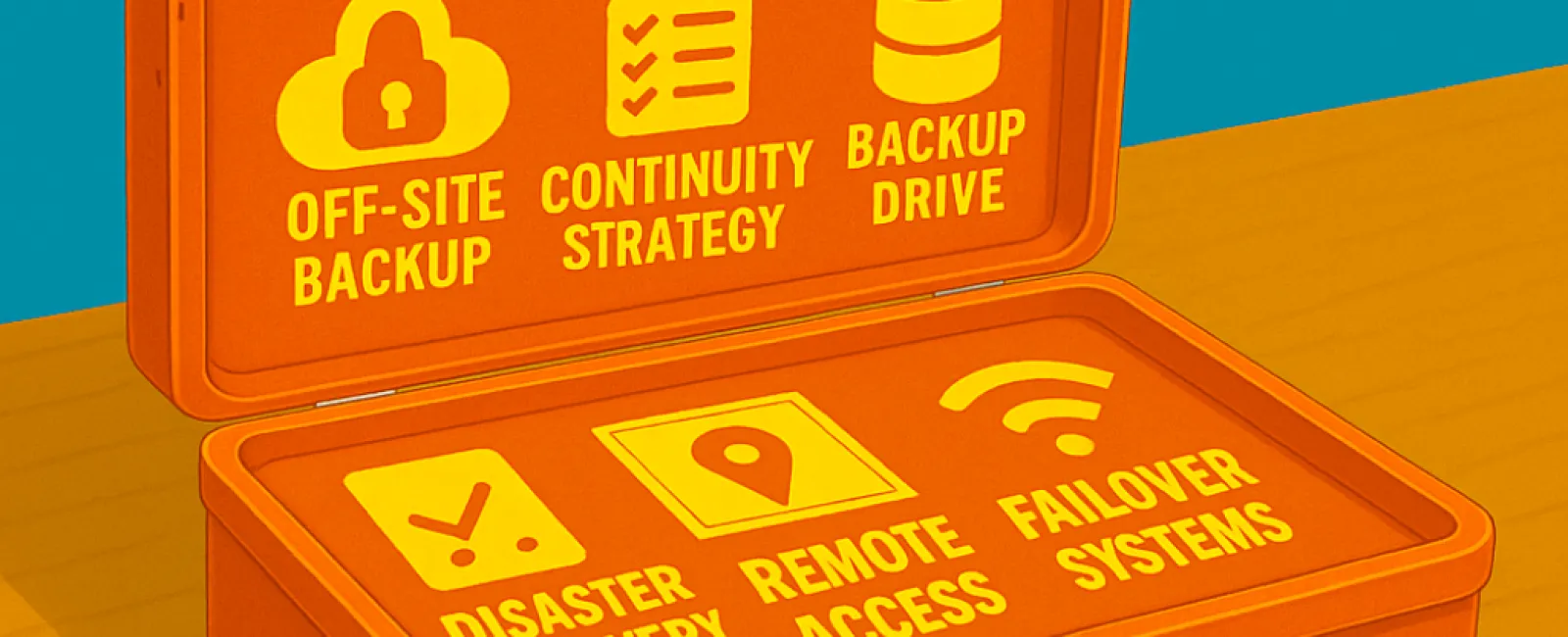July 28, 2025
Unexpected power failures, cyberattacks, equipment malfunctions, and natural disasters can strike without warning, causing severe damage to small businesses. Many believe that simply having backups is sufficient, but recovering a file is not the same as maintaining full business operations. Without access to critical systems, the ability to support remote work, or effective communication with your team and clients, even brief interruptions can lead to prolonged setbacks. Your trusted IT partner should equip you with more than just backups—they should deliver a comprehensive strategy to keep your business running smoothly under any circumstance.
Backups Alone Won't Cut It—You Need a Robust Continuity Strategy
Backups are vital, but they represent only a fraction of what's necessary. What your business truly requires is a business continuity plan—a forward-thinking approach designed to ensure uninterrupted operations during and after any crisis.
When systems fail, files become unreachable, or your workplace is compromised, relying solely on a backup stored locally offers little relief. Without a well-defined plan to swiftly restore operations, your business risks significant losses in revenue, reputation, and regulatory compliance.
Understanding the Critical Difference: Backups vs. Business Continuity
Many businesses make this crucial mistake:
● Backups enable data restoration.
● Continuity ensures your business stays functional regardless of the challenge.
A comprehensive continuity plan addresses vital questions like:
● How quickly can we resume operations?
● Where will the team work if the office becomes inaccessible?
● Which systems are absolutely essential for business survival?
● Who is responsible for initiating the recovery process?
It also incorporates critical elements such as:
● Encrypted, off-site, and immutable backups
● Clearly prioritized recovery objectives (RTO/RPO)
● Preparedness for remote work capabilities
● Redundant systems and automatic failover mechanisms
● Routine disaster simulation exercises to ensure readiness
If your IT provider cannot confidently guide you through these essential components, it's not protection—it's just luck until disaster strikes.
Could This Happen to Your Business? Absolutely.
This isn't a scare tactic—it's a reality check. Recent events have shown how devastating disasters can be:
● Florida hurricanes forced hundreds of businesses to halt operations due to lack of cloud access.
● North Carolina floods destroyed on-site servers, wiping out months of critical data.
● California wildfires razed office buildings in the Pacific Palisades, many without off-site recovery plans.
● Numerous small businesses have suffered from ransomware attacks, discovering backups were corrupted or untested.
Disasters don't discriminate—they impact businesses of all sizes every day.
Essential Questions You Need to Ask Today
If disaster struck tomorrow, would your business keep running?
Ask your IT provider:
● How quickly can we recover from a ransomware attack?
● Are backups regularly tested, and which systems are covered?
● What's the contingency if a flood or fire renders our office unusable?
● Is our continuity plan fully compliant with industry standards?
● Can we continue serving clients if our team must work remotely?
If you don't have clear, confident answers, your business might already be vulnerable.
Disasters Are Inevitable. Downtime Doesn't Have To Be.
While you can't prevent every outage, storm, or cyberattack, you can control how your business responds.
An excellent IT provider helps you recover.
A superior one ensures your business never misses a beat.
Curious about your current preparedness?
Click Here or call us at 866-523-2985 to schedule your FREE 15-Minute Discovery Call, and let's safeguard your business against downtime caused by disaster.





